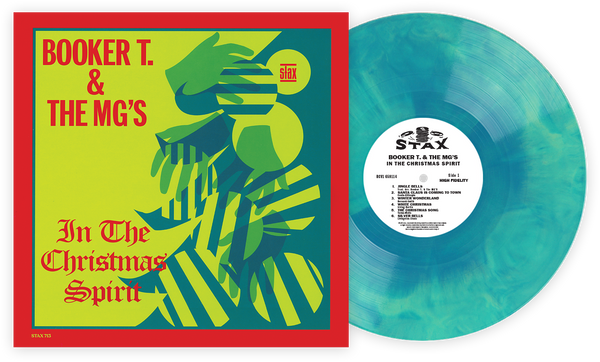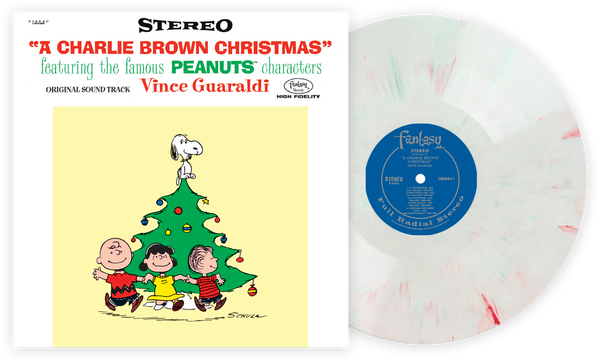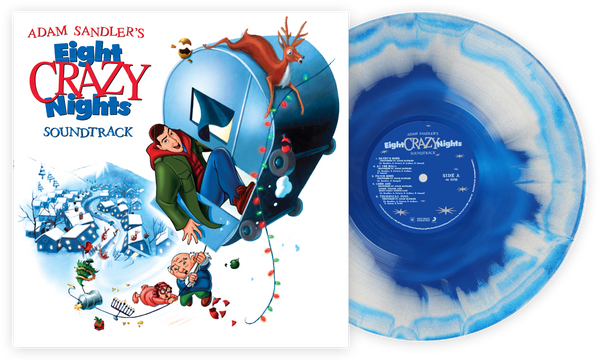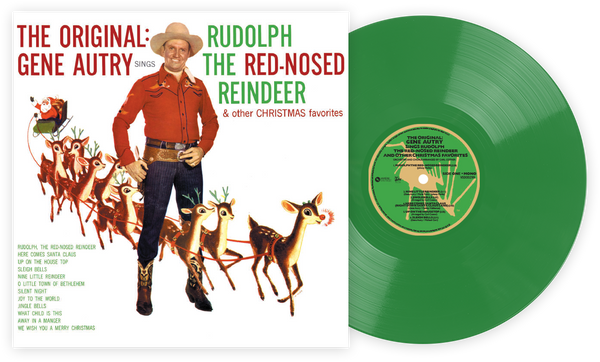Wawancara dengan Haruomi Hosono, Brian Wilson dari Jepang
We Talk To The J-Pop Master As His Music Hits U.S. Shores For The First Time
Musik Haruomi Hosono sekaligus besar dan tidak dikenal. Musisi Jepang ini adalah salah satu arsitek utama dari berbagai musik Jepang, mulai dari band folk-nya Happy End, hingga grup rock psikodelik Apryl Fool, hingga ‘trilogi tropis’-nya yang menggabungkan tropicalia dengan rock psikodelik. Dia telah menginspirasi pendatang baru muda seperti Mac DeMarco dan telah dipuji sebagai seorang jenius oleh jenius pop Amerika yang memecahkan genre, Van Dyke Parks. Semua ini terjadi meskipun musiknya dari tahun 70-an—musik paling berpengaruhnya—hanya tersedia sebagai barang impor di luar Jepang (dan seharga 100 dolar atau lebih di Discogs) dan tetap tidak tersedia di layanan streaming. Artinya, sampai sekarang.
nBerkat Light in the Attic, dan terutama produser rilis ulang mereka Yosuke Kitazawa, lima album seminal Hosono akhirnya dirilis ulang di luar Jepang untuk pertama kalinya. Vinyl Me, Please menampilkan edisi warna eksklusif dari Cochin Moon (Beli di sini) dan Hosono House (Beli di sini), dan menjual Paraiso bersamanya sebagai paket di sini.
nAnda dapat membaca lebih lanjut tentang kampanye rilisan kembali Light in the Attic di sini. Di bawah ini, kami menyajikan wawancara baru dengan Hosono yang dilakukan oleh Kitazawa yang membahas tentang masa-masanya di Yellow Magic Orchestra (bandnya di tahun 70-an), bagaimana rasanya musiknya menjangkau audiens yang lebih besar dan nostalgia.
How do you feel about having your music released outside of Japan? Did you ever have the desire to become successful overseas?
Haruomi Hosono: We live in an era in which we can easily go back and rediscover music from the past, and I personally get enjoyment out of discovering buried obscurities, in an archaeological sense. That said, it surprises me that there’s interest in my own albums now, while at the same time I’d like to say thank you to the people who want to put them out. With Yellow Magic Orchestra in the ’80s, we were thinking more about the overseas market than Japan. At the same time, we felt that we were marketing ourselves toward the small number of specific music lover types that exist in every country. That’s the kind of aspiration we had with YMO. The reason being that up until then, with my solo albums, I was working in a very insular manner, making whatever I wanted to make. The music wasn’t facing outward; it was rather inward-facing. That kind of music doesn’t reach too many people. I felt that it would’ve been difficult to continue making music that way; that’s why I took a bet on the team that we called YMO.
What made you decide to play overseas now, after all these years?
With these shows it feels like I’m just going with the flow, like, “Let’s see what happens.” In the past I didn’t really like playing live, but since about 10 years ago, for whatever reason, I’ve been playing live consistently and I actually started to enjoy it. But there’s the conflict of what I call “musical schizophrenia” that baby boomers in Japan are always tormented by — even if my music is understood in Japan, I feel that’s not gonna be the case with Western audiences. So it’s hard to get too excited about playing overseas. That said, when I played for the first time in Taiwan and Hong Kong this past January, I was impressed by how much they understood what I was doing, much more than I thought they would. So now I think I’d be OK in Asia. I don’t entirely know what to expect in London, so I am a bit more worried than not. To be honest, more so than just playing overseas, I do have a desire to play at some small cafe in some place like Brooklyn. Rather than shouting into an audience of unknown size, I prefer to do something a bit more modest and smaller in scale.
Apryl Fool, Happy End, YMO, solo artist, session player, songwriter, producer — you’ve assumed many roles as a musician. Which one do you enjoy the most? Out of all the projects you’ve been involved in, what’s your favorite?
I like being in recording sessions with people I get along with, like how it is at Muscle Shoals. Being in a band is just like any plan or a project, and it brings with it tense relationships and responsibilities. I’ve been able to handle that kind of stress in the past, but I don’t want any more of it now. And since I’ve realized that I’m not as proficient as I thought, I don’t want to overextend myself and try to do something just for the sake of it. What role am I most suited for? That would be listening to music. If I can add to that, it’s not just listening to music, but also distinguishing all the different aspects of music.
You have an incredible track record as a songwriter, not just for your own records but also for other artists. But recently you’ve said that instead of writing new songs, it’s more important to cover other people’s songs in order to preserve them. Why is that?
There are as many wonderful songs from the the 20th-century West as there are the number of stars. I’m happy to be listening to those songs each day after day. Of course I haven’t gotten rid of my desire to write new songs myself, but there are so many classic songs out there in this world already, I think it’s more important to sing them in order to preserve them. People today tend to forget those things, so sometimes it feels like music is an endangered species. Nuance, groove, acoustics — there are already many aspects that have been lost.
How do you feel about other artists covering your song?
I myself will become extinct someday, so I’d be grateful if there’s someone who can carry on.
You’ve mentioned that you never enjoyed singing until recently. Why did it take 50 years to come to that point?
Because I’m not good at singing. But about 10 years ago I realized that it’s fun to sing songs that I like.
From a young age you’ve been fascinated with American popular culture, like country music, Western movies, West Coast pop music. What led you down that route? Did it have to do with the Occupied Japan era?
When I was born two years after the end of the war, it was in the capital city of a defeated country — Tokyo. The GHQ headquarters was there, and Americanization was storming through Japan. But a lot of great movies and music came as a result, and when I was around 4 I was listening nonstop to boogie woogie music on 78s. There were lots of military music and rokyoku, but I always picked out the swing or Disney music for myself. At my live shows in Japan I’m always muttering about how the GHQ brainwashed me into playing boogie woogie.
What were your first impressions of coming to America — was it different from how you had imagined it to be? How do you feel about America today?
We recorded at the famous Sunset Sound studio, did a session with Van Dyke Parks, observed Little Feat recording Dixie Chicken — it was an important learning experience. Other than that, we bought a bunch of records and ate a lot of hash browns at Denny’s. I was 22 at the time. Why do American records sound good? Is it the electricity? Is it the magnetic fields? Those are the kind of questions we were asking each other every day. Back then America felt so far from Japan culturally, and I had a strong admiration toward it. But not so much now. It’s the same with Japan too. I wonder what changed so much...
You’ve referred to Van Dyke Parks as “sensei.” What have you learned as a student of his? What kind of America did you discover from listening to his Discover America album?
What I learned from the maestro was the method of layering different colors of sounds one by one, making music like a painter. Discover America taught me how music in America has been greatly enhanced by its hybrid culture, taking cues from Caribbean or Creole music, for example.
Which is a bigger musical inspiration for you: the imaginary world as seen through the lens of Hollywood movies and exotica that you’ve loved since your youth, or the real world that you see in front of your eyes?
Living within society is the reality for human beings — and that society can inhibit us. But relatively speaking, we do have some freedom in our personal time. When driving a car, for example, I’d like to think that we still have the freedom to go anywhere. But even then cars can’t leap across time. Our hearts, though, have the ability to fly to the edge of the universe. That is the world of inspiration. Exotica provided me with a sense of release from the framework of reality.
It seems that your “Tropical trilogy” and YMO as a whole were conceptual in that they explored how Japan was seen through the eyes of the West. In other words, flipping the script of “orientalism” and expressing it through music from a Japanese perspective. Why were you interested in that kind of subversive perspective?
In the past each country’s music had its own color. But in the ’80s, music made with synthesizers and programming was emerging at the city level and Tokyo was no different. But information society has rendered these city-level individualities virtually meaningless. Now it’s either global music, or a very personal kind of music created through bedroom recording. In the YMO era, rather than looking overseas for inspiration, it was more fun for us to refresh our perspective towards our own home of Tokyo. It’s the same kind of excitement tourists get when they visit Tsukiji in Tokyo or go inside a pachinko parlour. So it was different from orientalism; it was aspiration toward chaos. I think people tend to be drawn to the chaos within order, or the order within chaos.
YMO has been described as the sound of Tokyo. How would you describe the Hosono sound?
Working with a band or as a producer is similar to working as a design team. But the music I make for myself is more like the work of a painter or a sculptor. Using instruments as a palette, I’d pile on layers of sound or scrape them away. So it’s just my own personal music.
You’ve mentioned that you’re attracted to a mixture of different cultures, like in New Orleans music. In that sense, how do you feel about Japanese culture, which doesn’t seem as diverse compared to some of the big U.S. cities?
In the 1950s interesting music was being made all around the world, Japan included. It was an era when all the great music [styles] were influencing each other. In Japan there was a strong mambo influence, even inventing a new rhythm called “Dodompa.” New Orleans musicians were influenced by songs like Ray Charles’ “What I’d Say,” and were incorporating new sounds into their homegrown styles. Where music is born is always unintentional, pleasure seeking, plain and simple, and there’s never any difficulties.
You’ve always had an interest in latest technologies and incorporated them in your music. Is that still the case now? How do you feel about the latest synthesizers and software instruments?
Sadly I’ve become disillusioned. In the early 2000s PCs were still flexible, and there were many interesting plug-ins. Now the systems are so tightly controlled that the tools that I’d been using start dying along with every OS update. Now we have high-quality sound files, and you can even make real sounding orchestras with them. CG has seen the same kind of evolution. But the tool I want now is the early Emulator. I used it to make the album Philharmony, which would be impossible to do now. I liked the low resolution sounds contained in the big floppy disks, but I don’t have the equipment to decode that anymore. I don’t have the energy in me to revive that. But I’m sure there are sound files like that. I’ll look for them. By the way, I’ve been using old RCA microphones for recent recordings. But it’s mixed at 96khz. The input is the ’40s, and the output is the latest — that’s the way it is.
Of all the instruments you’ve use to make music, which one is your favorite?
An acoustic guitar and a Spanish guitar that I’ve been using a lot recently. The former is a Gibson “Nick Lucas” model from the 1930s. The latter was custom made by a wonderful guitar maker in Tokyo, with a neck made to fit my hands and a similar design to the famed Arcangel guitar that I love. It’s got a beautiful sound. Oh, and I can’t forget this — I’m primarily a bassist. I cherish my 1964 Fender Jazz Bass.
How do you feel about looking back at your past?
The past is always catching up to you. But it’s not good to have too much interest in yourself. It should be left alone.
You’ve mentioned that coming up with band names is a hobby of yours. What is the name of your next band? Do you have any good band names that you’ve never used?
I’ve gotten tired of it. I’m getting tired of most things. But I’m always taking notes of words that might become good song titles. And it might be good to form a band. With my name hidden. Will I get tired of that as well?
What’s your next project?
Argh, I’m not good with the idea of projects. I’ve never been able to plan out my life. There’s more of the past now than the future, so I can’t think too much ahead. If I can hide my name from it, I would play around with a techno unit. But I probably won’t do it. Who knows? I’m not really sure.
Besides music, what excites you right now?
Theoretical physics, like quantum theory and superstring theory, that asks us how much people can possibly know about the world. In other words I’m feeling the “World’s End” each and every day. As you know, living here in Tokyo, earthquakes happen frequently.
Yosuke Kitazawa is a reissue producer at Light in the Attic.
Related Articles
Bergabung dengan Klub!
Bergabunglah Sekarang, Mulai dari $44
Diskon eksklusif 15% untuk guru, mahasiswa, anggota militer, profesional kesehatan & petugas tanggap darurat - Dapatkan Verifikasi Sekarang!








